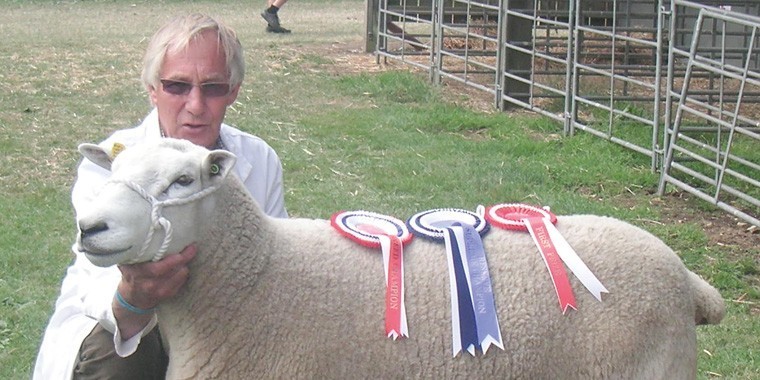The weather seems to be a constant talking point for farmers, largely because it is rarely the right weather, it is either too hot or too cold, too wet and currently getting far too dry. The first half of June only produced 3% of our annual rainfall and I suspect that the second half will not have been significantly different, the result being that for many people grass supplies are beginning to dwindle quite rapidly and producers are now starting to off load any lambs that are close to being finished, in order to take the pressure off available grass.
As grass supplies begin to tail off, quality will also deteriorate, once grass comes under significant stress it will try to flower and head as quickly as it can, topping will slow the process and help to rejuvenate the grass if there is sufficient moisture available, but when it is really dry does have limited benefit. Weaning can be useful free up the best grass for the lambs. In general ewes can be held on the poorer grass, particularly if they are reasonable body condition at weaning. Molasses blocks certainly help eke out available grass and do enable, by feeding the rumen, ewes to make much more effective use of available forage even if poor feed value. I have a couple of paddocks that should, time permitting, have been topped off, which are now more or less a standing hay crop; I am now beginning to think that not having the time to top them has been beneficial, I know that there is sufficient grass, in terms of quantity to hold them for quite a while and with blocks provided will probably also lift their condition after weaning.
This does illustrate the fragility of our reliance on a source of forage that effectively stops growing once soil moisture deficit drops significantly below 2.54cm (I inch) a point that many on lighter or shallower soils would have reached some time ago. I know that one hot day does not make a summer and that it could start raining tomorrow and not stop for the rest of the summer (unlikely), but many within the scientific community are predicting that what we are seeing now will, going into the future, become the norm, i.e. hotter and dryer summers. There are a number of forage crops that are rather more drought tolerant than grass for example Chicory and Plantain, both crops that extend available grazing in a dry summer and which will produce excellent daily live-weight gains for finishing lambs, but crops that are still relatively unusual.
Lamb prices have this week taken a real hit, dropping to around 150ppkg (live-weight) locally and even worse in some other parts of the country, the drop arising for a number of reasons. Ordinarily prices would start to drop as more finished lambs start to come onto the market, exacerbated this year by the dry weather as some producers seek to unload before lambs start to go backwards.
The weather also has an impact on demand, we are now into BBQ weather and sadly lamb is not the first choice for many whose BBQ skills often don’t extend much further than a couple of sausages a burger or two and maybe a piece of chicken. A nice piece of lamb well cooked on a BBQ is so much nicer than any charred sausage or burger, but sadly, for many, unsure of their own BBQ skills, is not their first choice of meat for the BBQ, Add to this the continuing strengthening of Sterling making exports more expensive and the combined impact is a significant downward pressure on prices.
The demise last month of the only volume (albeit limited) slaughtering facility in Kent has no doubt also had a significant impact on prices locally, transport costs. Sadly lambs are only ready once and when they are ready they need to be sold, some breeds do have a little more flexibility than others in terms of finishing, but I suspect that our increasing reliance on continental terminal sires, which have undoubtedly opened up new markets, has at the same time significantly reduced that flexibility.
I’m sure that this year will encourage a number of sheep keepers to step back and take a long hard look at what they are doing, why and just how they are doing it, in itself not a bad thing, honest self appraisal can be difficult and uncomfortable but will often pays dividends. After all as the saying goes “If you always do what you’ve always done, you’ll always get what you’ve always got.”




